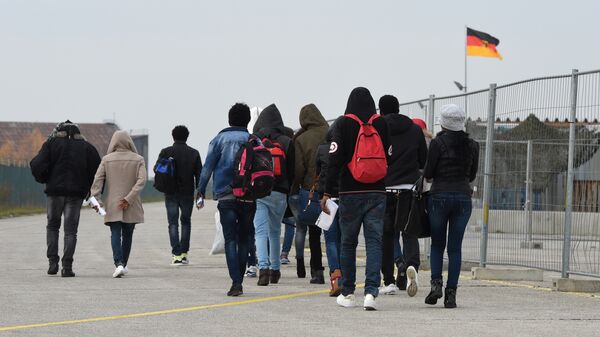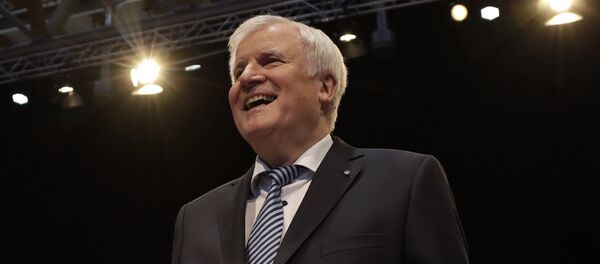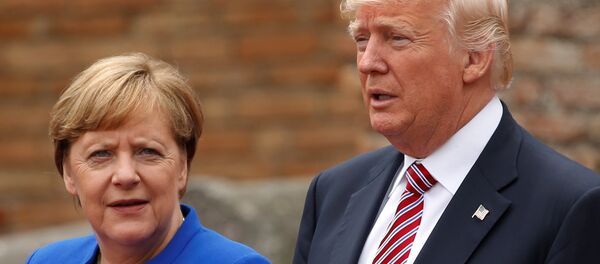In turn, the poll showed that the support for the Alternative for Germany (AfD) party gained a record high of 17 percent.
The survey also revealed that two SPD politicians — German Foreign Minister Heiko Maas and Finance Minister Olaf Scholz —were Germany's most popular and second most ppular politicians, while Angela Merkel came only third.
In last September's federal election, the CDU/CSU alliance won 32.9 percent of the vote and the AfD surged into the national parliament for the first time with 12.6 percent, making it the third largest party. The SPD came second with 20.5 percent.
The decision to create migrant processing centers was made by Germany after a July crisis in the ruling coalition, with Seehofer having demanded a stricter migration political course from the federal government.
The microcensus by the Federal Statistical Office (Destatis) revealed on Wednesday that Germany has seen a year-on-year increase of 4.4 percent in population with foreign roots in 2017 as their number exceeded 19 million.
The population of Germany stands at 82.7 million as of September 2017, according to the office. Thus, the share of people with foreign roots amounts to over 23 percent.
European countries have been experiencing a severe migration crisis since 2015 due to the influx of thousands of migrants and refugees fleeing crises and poverty in the Middle East and North Africa. Along with Merkel's so-called open doors policy, Germany has since then welcomed hundreds of thousands of migrants and asylum seekers.
Infratest Dimap polled 1,508 voters across Germany from Monday to Wednesday this week, Reuters reported.




